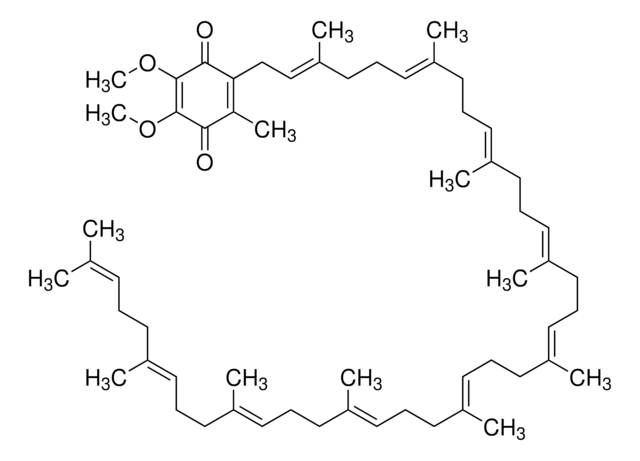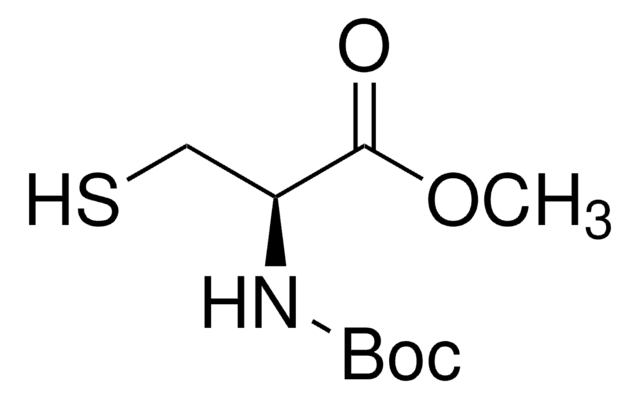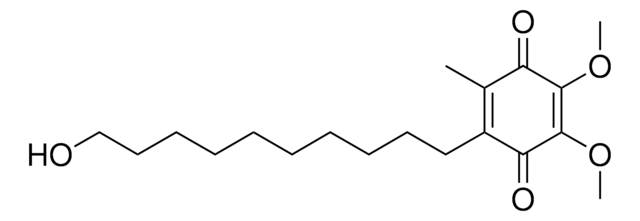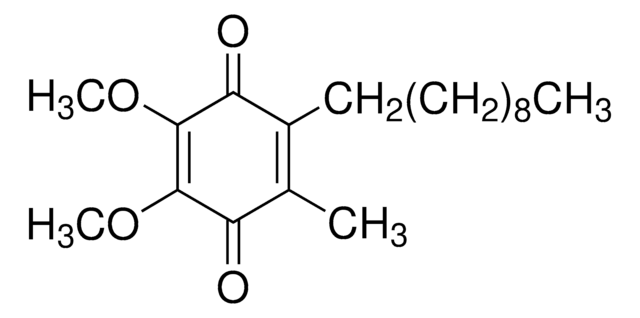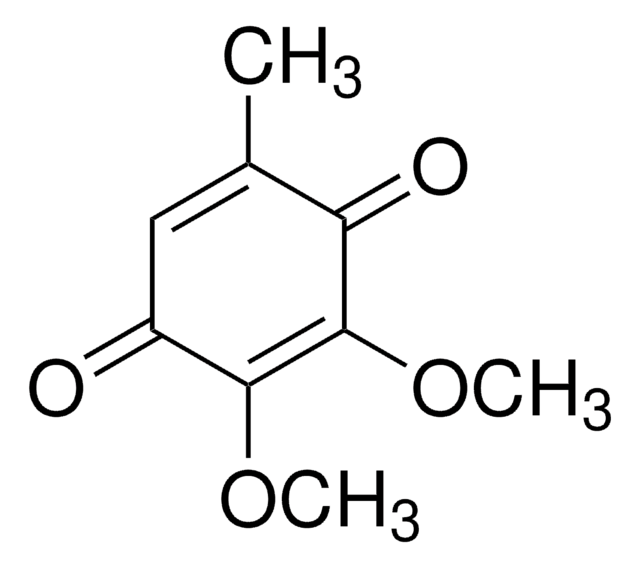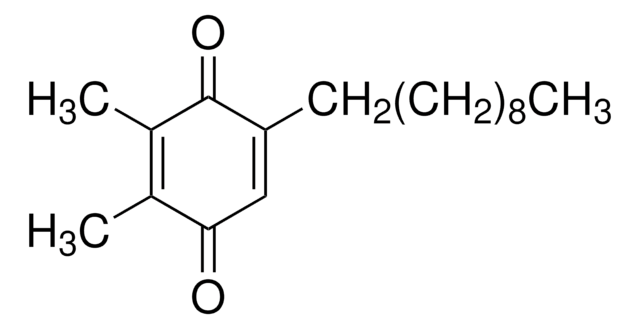C9538
Coenzyme Q10
≥98% (HPLC), powder, antioxidant
Synonym(s):
CoQ10, Q-10, Ubiquinone 50, Ubiquinone-10
About This Item
Recommended Products
Product Name
Coenzyme Q10, ≥98% (HPLC)
Quality Level
Assay
≥98% (HPLC)
form
powder
color
yellow to dark orange
mp
49 °C
application(s)
cell analysis
storage temp.
−20°C
SMILES string
O=C(C(OC)=C1OC)C(C/C=C(C)/CC/C=C(CC/C=C(CC/C=C(CC/C=C(CC/C=C(CC/C=C(C)/CC/C=C(C)/CC/C=C(C)/CCC=C(C)C)\C)\C)\C)\C)\C)=C(C)C1=O
InChI
1S/C59H90O4/c1-44(2)24-15-25-45(3)26-16-27-46(4)28-17-29-47(5)30-18-31-48(6)32-19-33-49(7)34-20-35-50(8)36-21-37-51(9)38-22-39-52(10)40-23-41-53(11)42-43-55-54(12)56(60)58(62-13)59(63-14)57(55)61/h24,26,28,30,32,34,36,38,40,42H,15-23,25,27,29,31,33,35,37,39,41,43H2,1-14H3/b45-26+,46-28+,47-30+,48-32+,49-34+,50-36+,51-38+,52-40+,53-42+
InChI key
ACTIUHUUMQJHFO-UPTCCGCDSA-N
Looking for similar products? Visit Product Comparison Guide
Related Categories
General description
Application
- as a bioactive compound to study its immune modulating properties in vitro
- as a standard for high-performance liquid chromatography
- to study its effect on exercised rat aorta
- in the cellular CoQ uptake assay
Biochem/physiol Actions
Storage Class Code
11 - Combustible Solids
WGK
WGK 3
Flash Point(F)
Not applicable
Flash Point(C)
Not applicable
Personal Protective Equipment
Choose from one of the most recent versions:
Already Own This Product?
Find documentation for the products that you have recently purchased in the Document Library.
Customers Also Viewed
Articles
Learn about the four membrane-bound protein complexes that make up the electron transport chain metabolic pathway supplying energy as ATP for cellular respiration.
Antioxidants protect biological systems from oxidative damage produced by oxygen-containing free radicals and from redoxactive transition metal ions such as iron, copper, and cadmium.
Related Content
Discover Bioactive Small Molecules for Lipid Signaling Research
Our team of scientists has experience in all areas of research including Life Science, Material Science, Chemical Synthesis, Chromatography, Analytical and many others.
Contact Technical Service